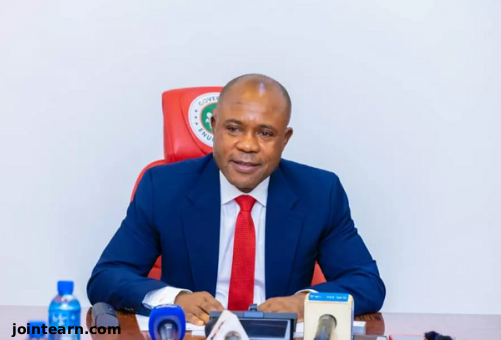
Governor Peter Mbah of Enugu State has inaugurated a nine-member committee to conduct a comprehensive review of all state-controlled tax policies, rates, levies, and fees.
The committee, which has two weeks to complete its assignment, is expected to benchmark Enugu’s revenue practices against those of Lagos, Abuja, and neighbouring South East states. Its review will cover critical areas such as Land Use Charge, Certificate of Occupancy (C-of-O) fees, market levies, stall rents, signage and advertising fees, and business premises registration. The goal, according to the government, is to recommend reforms that enhance compliance, fairness, transparency, and revenue efficiency.
The committee is chaired by the Solicitor-General of Enugu State, Ikechukwu Ezenwukwa, with the Governor’s Senior Special Assistant on Revenue Mobilisation, Adenike Okebu, as secretary. Members were drawn from government institutions, labour groups, market associations, and civil society. They include:
- Comrade Ben Asogwa, Chairman, TUC, Enugu
- Chief Chinwuba Igwesi, Chairman, State Market Association
- Ngozi Ezema, Head of Legal, ESIRS
- Chief Chinedu Mbah, SSA to the Governor on Markets
- Engr. Nnanyelugo Onyemelukwe, 1st Deputy President, ECCIMA
- Hon. Paul Okwo, ALGON representative
- Barr. Crownwell Chibuzo, civil society representative
Inaugurating the committee at Government House, Enugu, Governor Mbah—represented by the Secretary to the State Government, Prof. Chidiebere Onyia—said the decision was prompted by widespread concerns from citizens, businesses, and market groups over various taxes and revenue collection practices in the state.
He outlined the committee’s mandate, which includes:
- Reviewing existing harmonisation and revenue-related laws
- Assessing the current implementation of these laws
- Identifying all state-controlled revenue heads
- Addressing cases of duplication and multiple taxation at both state and local government levels
- Examining the impact of expanding the tax bracket
- Evaluating the fairness, transparency, and efficiency of current rates and collection processes
He also directed the committee to conduct extensive stakeholder consultations, including interviews and surveys with property owners, market traders, local government officials, civil society groups, and business operators.
Providing context to the state’s revenue reforms, Mbah noted that his administration has transitioned Enugu from a fragmented revenue collection system to a unified, digital, and performance-driven model.
“One of our most decisive reforms was ending cash collections across all MDAs. This was not just procedural—it was a philosophical shift toward transparency and traceability,” he said.
He explained that routing all payments through digital platforms has blocked leakages, improved accountability, and boosted public confidence. Additionally, the government has introduced performance appraisal frameworks that assign revenue targets to each MDA based on their mandates.
Mbah emphasized that government revenue must directly translate into improved public services.
“Revenue is not just a fiscal tool; it is a moral obligation. Every naira we collect must result in better schools, safer roads, clean water, and a brighter future for our people.”
Responding on behalf of the committee, Ezenwukwa described the assignment as a testament to the governor’s responsiveness and commitment to citizens’ concerns. He assured that the committee would diligently deliver on its mandate.


Leave a Reply